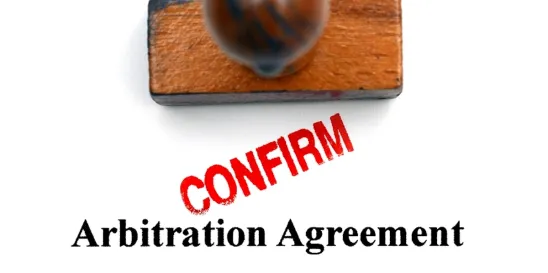Hohenshelt v. Superior Court, 318 Cal. Rptr. 3d 475 (Cal. Ct. App. 2024)
For the seventh time since they became effective in 2020, the California Court of Appeal has published an opinion holding that Cal. Code Civ. Proc. §§ 1281.97 and 1281.98 truly mean what they say: “[I]f the [arbitration] fees or costs… are not paid [by the employer] within 30 days after the due date, the drafting party is in material breach of the arbitration agreement, is in default of the arbitration, and waives its right to compel the employee … to proceed with that arbitration.” See, e.g., Suarez v. Superior Court, 99 Cal. App. 5th 32 (2024) (intervening national holiday does not extend time for employer to pay fees). Consistent with the holdings of the prior cases, the Court held that the ADR provider has no discretion to extend the period for the employer to pay, and if the payment is received by the ADR provider even one day late, the employer is in “material breach” of the arbitration agreement and irretrievably waives its right to compel arbitration. Like courts before it, this Court held that the Federal Arbitration Act (FAA) does not preempt this strict state statute “because [it] prescribes further—rather than frustrates—the objectives of the FAA… [In fact, the California statute] is a friend of arbitration and not its foe” (citations omitted).
Associate Justice John Shepard Wiley Jr. filed a particularly pithy dissent worthy of the late Justice Scalia in which he first noted that:
California state law disagrees, strongly and persistently, with federal law about whether arbitration is desirable… This California statute “singles out arbitration agreements for disfavored treatment.” No other contracts are voided on a hair‑trigger basis due to tardy performance. Only arbitration contracts face this firing squad.
Justice Wiley then predicted: “By again putting arbitration on the chopping block, this statute invites a seventh reprimand from the Supreme Court of the United States.” He proceeded to recount the six prior instances over the past 37 years in which the Supreme Court of the United States has “rebuked California state law that continues to find new ways to disfavor arbitration.” Finally, Justice Wiley cited approvingly a recent U.S. District Court opinion that “debunks” the argument that the statute is really “pro‑arbitration”: Belyea v. GreenSky, Inc., 637 F. Supp. 3d 745 (N.D. Cal. 2022) (holding that the FAA preempts Cal. Code Civ. Proc. § 1281.97).



 />i
/>i
